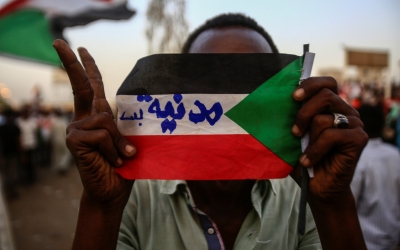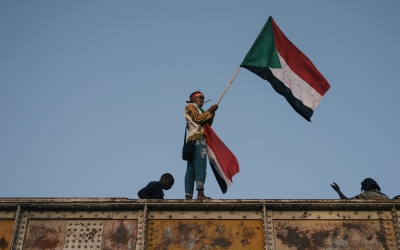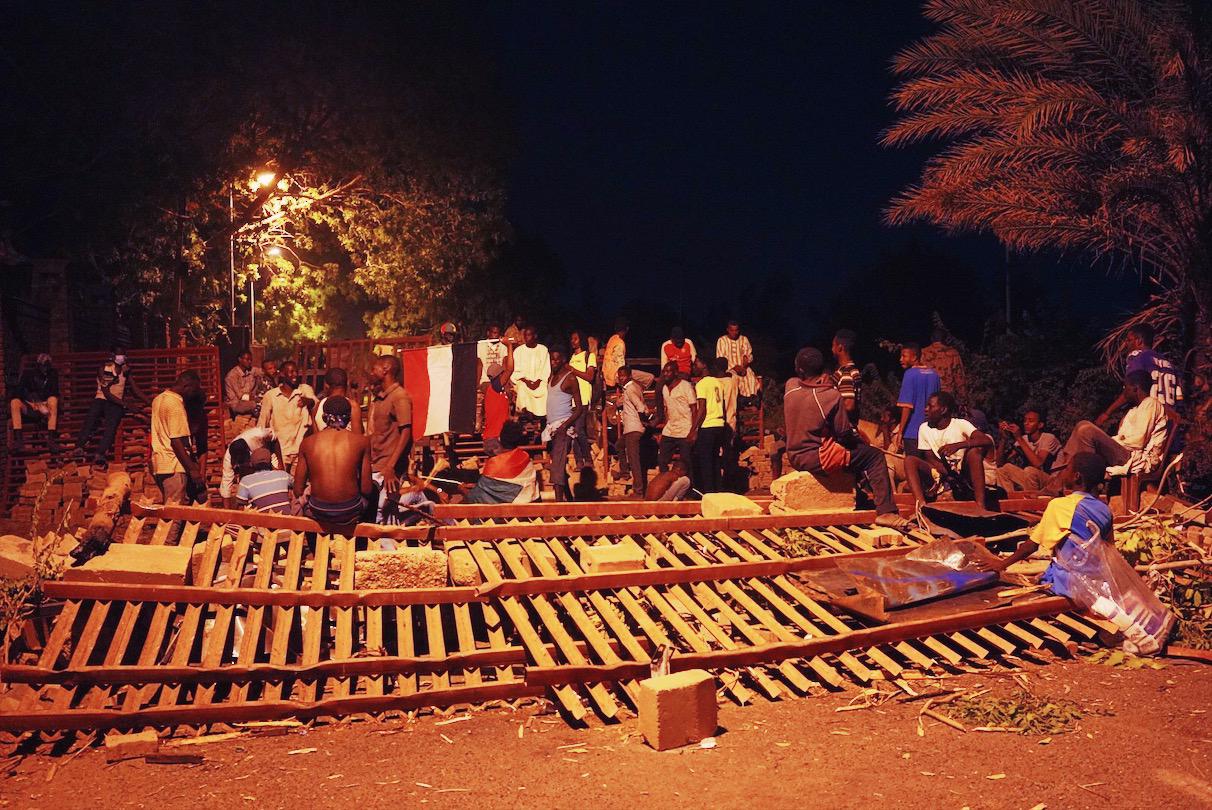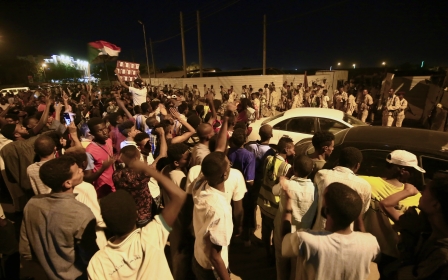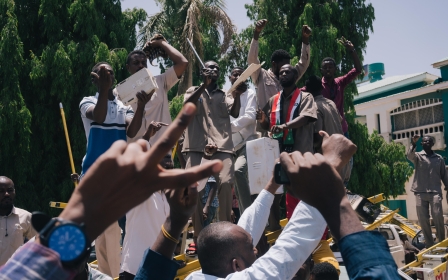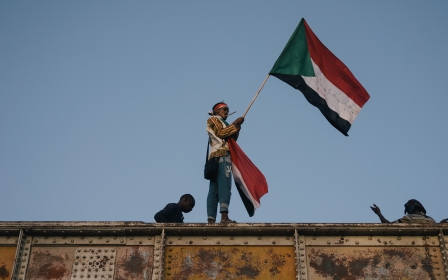Sudanese protesters dig in after bloody night puts pressure on talks with military
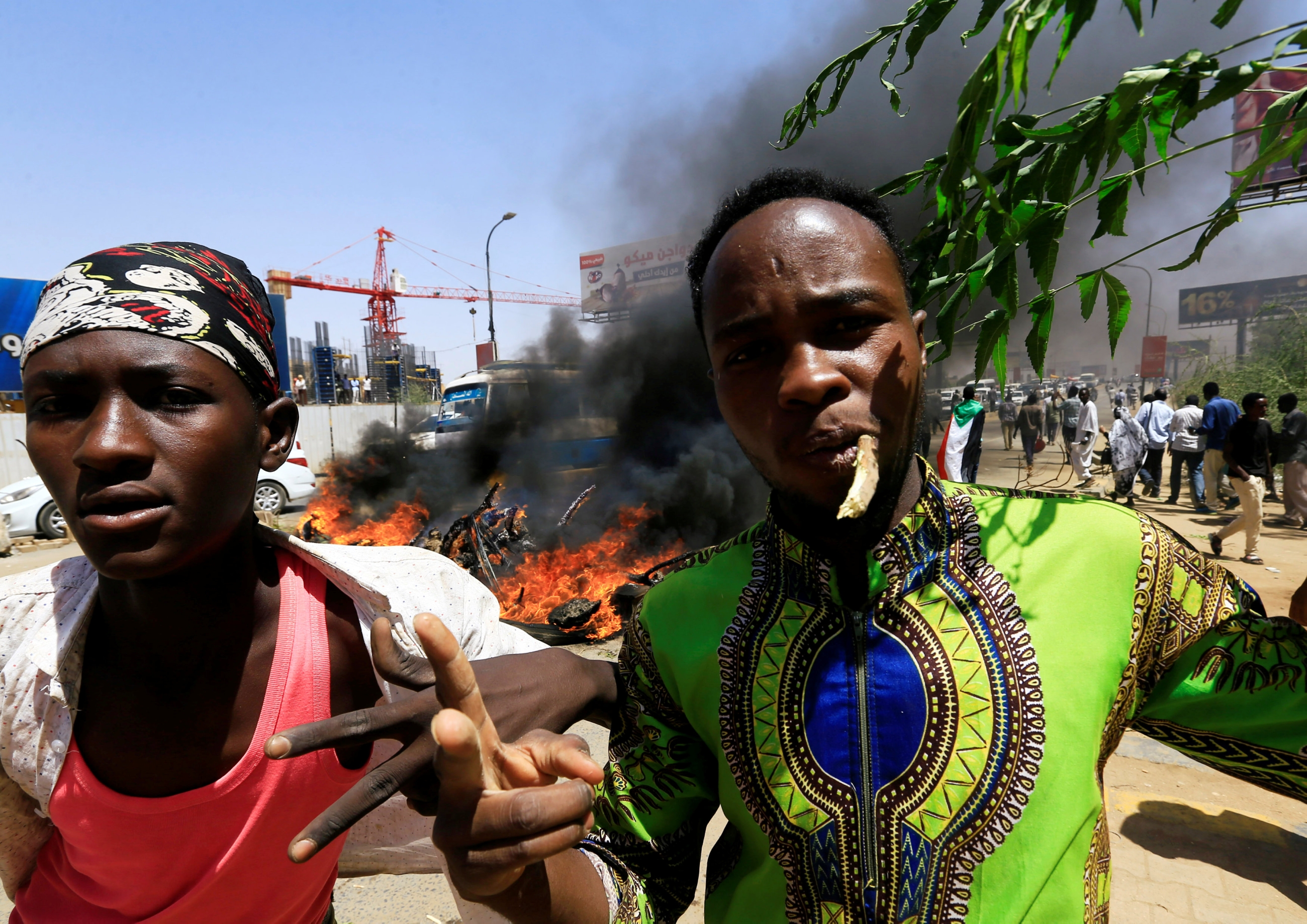
Sudanese protesters are bracing for a fresh standoff with the country's armed forces after their sit-in protest against military rule came under deadly attack.
The violence late on Monday followed an announcement that protest leaders and the military council ruling the country had come to an agreement over forming a transitional government, and ramps up pressure on talks set to be held on Tuesday.
The Sudanese Professionals Association (SPA), a leading organiser of the protests, called for citizens to rush to the sit-in on Tuesday morning "to complete our revolution and protect it".
Uniformed gunmen opened fire on protesters on Monday evening soon after Sudanese broke their Ramadan fast, killing six people and wounding scores more, according to the Doctors' Committee, an opposition grouping.
Earlier, the military council and the Forces for the Declaration of Freedom and Change, a civilian body including the SPA, said an agreement had finally been made on the makeup and structure of a transitional joint civilian and military authority.
The next round of talks are set to discuss two sticking points: the military-civilian balance of power in transitional bodies, and the length of the transition before elections.
Erecting barricades
Angered by the attack, protesters from Khartoum's suburbs streamed to the sit-in site outside the military headquarters throughout the night. Many dug bricks out of the pavements to use as material for new barricades that can prevent military vehicles entering the site.
Outside the military headquarters, protesters blamed the attack on the Rapid Support Forces (RSF) paramilitary group, which is controlled by the military council's deputy leader Mohamed Hamdan Dagalo, known as Hemeti. The RSF denied responsibility.
Others blamed supporters of former president Omar al-Bashir, who was toppled by the military on 11 April after months of protests and is now under arrest.
The military council claimed "lurking groups" who were unhappy with the announcement of an agreement with the protesters lay behind the attack.
"Behind this are groups that... are working hard to abort any progress in negotiations," the military council said.
At least 96 have been killed around Sudan since the sit-in started on 6 April, but Monday night's deaths were the first in Khartoum for several weeks. A protester was killed when armed forces cracked down on a similar sit-in in Darfur, west of the capital, last week.
Following Bashir's removal, protesters have vowed to continue their sit-in until the military council who replaced the president also steps aside in favour of a civilian government.
There have since been several rounds of talks about the creation of a transitional authority composed of both civilian and military leaders.
The lack of progress in those talks, and the military's public rejection of opposition proposals last week, prompted calls for "civil disobedience". Protest leaders have suggested blocking roads and bridges, as well as carrying out industrial strikes in key sectors.
Protesters on Sunday began blocking Nile Street, an important thoroughfare that runs along the River Nile, and the Mek Nimr bridge that links Khartoum North to the city centre.
The military has said it will not allow "chaos", and the armed forces have used tear gas and force to disperse protesters and remove barricades from the capital's key arteries.
On Monday afternoon, the military used tear gas and force to disperse protesters from the Mek Nimr bridge, and attempted to dismantle barricades on Nile Street.
However, on Tuesday Nile Street remained closed, with the barricades reinforced overnight.
Middle East Eye delivers independent and unrivalled coverage and analysis of the Middle East, North Africa and beyond. To learn more about republishing this content and the associated fees, please fill out this form. More about MEE can be found here.


